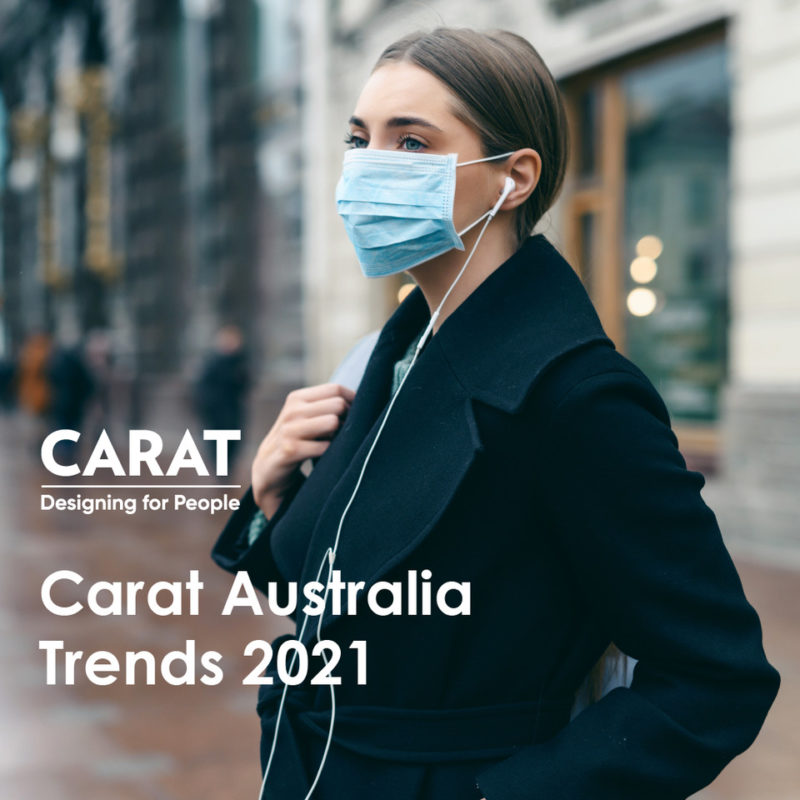Mental availability and transparency among Carat’s trends for brands in 2021
Carat’s 2021 trends report, released today, highlights the key ways that brands will need to adapt to remain successful in a post-pandemic year.
The theme of the upcoming year is ‘assimilation’, the Dentsu media agency said, with brands needing to spend more time catering to the wellbeing of consumers and operating with high levels of empathy and alertness.


